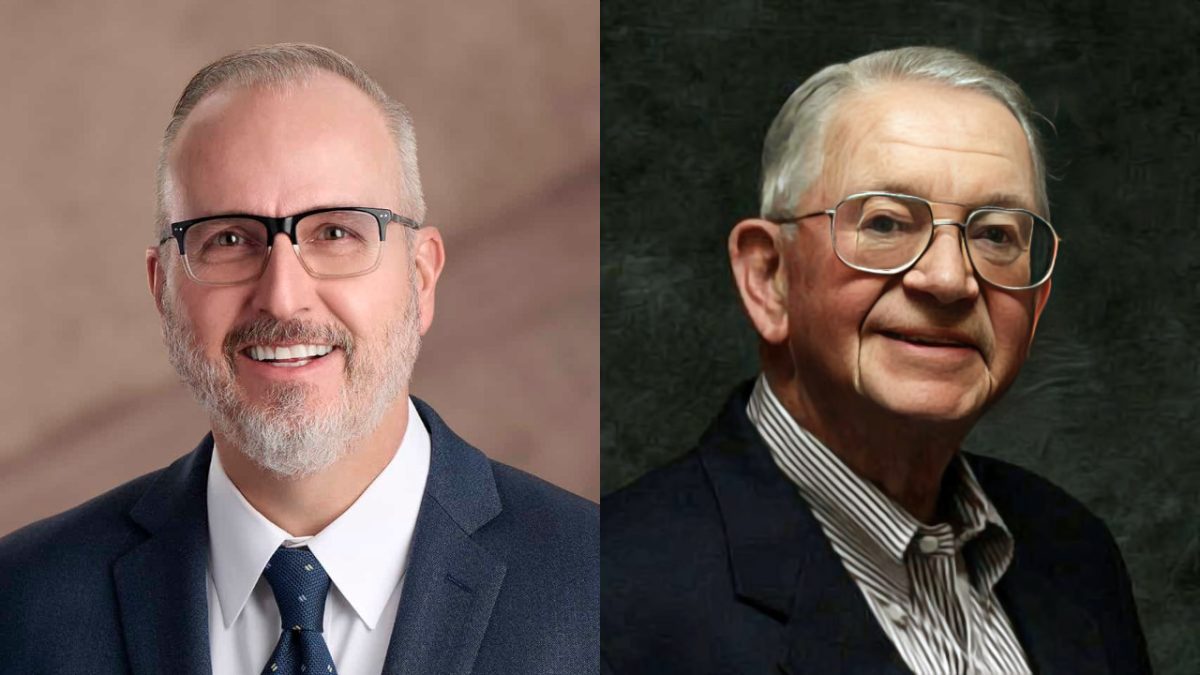Some Victories and some Loses
A Conversation with IFF President Ron Nate & Tea Party Bob
Podcast Notes by Bob Neugebauer
Conservative Victories and Economic Principles: A Turning Point for Idaho
The 2025 Idaho legislative session concluded with a significant victory for medical freedom in our state. After months of political maneuvering and resistance, Senate Bill 1023, the Health Freedom Act, has been signed into law, establishing what many conservatives consider the strongest medical freedom legislation in the nation.
A Legislative Battle Won
The 2025 Idaho legislative session concluded with a significant victory for medical freedom in our state. After months of political maneuvering and resistance, Senate Bill 1023, the Health Freedom Act, has been signed into law, establishing what I believe is the strongest medical freedom legislation in the nation.
This comprehensive bill prevents schools, governments, and businesses from requiring medical interventions for people to enter buildings, attend school, or engage with these entities. It ensures that Idahoans maintain bodily autonomy and cannot be forced to receive vaccines, wear masks, or submit to other medical interventions against their will.
The Fight Against Government Overreach
The journey of SB 1023 reveals much about the political landscape in Idaho. Introduced back in January, the bill faced numerous obstacles and delays through what can only be described as legislative shenanigans. After finally reaching Governor Little’s desk, he vetoed it just one hour before the deadline for signing.
His stated reason? A concern that schools might be forced to accept sick children—a claim that was nowhere in the bill. Other sections of Idaho law already address that issue. It appeared to be a contrived excuse to block conservative legislation.
The Daycare Center Controversy
What wasn’t mentioned in the Governor’s public statements was the real issue: daycare centers. As Leslie Manukian expertly pointed out on Capital Clarity, the amendments initially demanded by the Governor would have carved out daycare centers, allowing them to require vaccines and other medical interventions.
This represents a dangerous trend seen from progressives, who are constantly trying to extend government control into areas involving young children. They understand that if they can set policy for children, they can influence an entire generation. Vigilance is needed whenever pre-K, daycare, or infant care programs are discussed, as they often serve as vehicles for expanding government control from cradle to grave.
Conservative Victory Through Persistence
Thankfully, the tireless efforts of conservatives in the legislature, including Dan Foreman, Rob Beisinger, David Levitt, and Elaine Price, ultimately prevailed. The bill was amended on the final day of the session to restore it to essentially its original form—perhaps with an added comma and some removed code references, but with its intent and power intact.
Governor Little eventually signed the bill, though many believe this was due to political pressure rather than conviction. As a Conservative state, Idaho’s voters would not have looked kindly on a governor who twice vetoed a medical freedom bill.
DEI Programs Banned in Universities
In another win for conservative values, Governor Little signed legislation prohibiting Diversity, Equity, and Inclusion (DEI) programs at state universities. House Bill 1198 will halt the spending of taxpayer money on what are essentially Marxist concepts of critical race theory being pushed through our higher education system.
While we must remain vigilant—as these programs often simply change names rather than actually disappear—this represents important progress in reclaiming our educational institutions from radical ideologies.
Medicaid: The Budget Buster
Despite these victories, significant challenges remain for Idaho’s fiscal health. Medicaid continues to be the single largest threat to our state budget. With baseline funding at $5.2 billion and an enhancement budget of $674 million, Medicaid spending represents a staggering burden on Idaho taxpayers—approximately $300 per resident or $1,200 for a family of four.
Our reliance on federal matching funds—which cover 70% to 90% of costs depending on the program—creates extreme vulnerability. If the federal government decides to reduce its match percentage, Idaho would face a massive budget shortfall without any reduction in service requirements. We would be left holding the bag for hundreds of millions in unexpected costs.
Encouraging Signs in our Legislature
Despite these challenges, I see encouraging signs in our legislature. More truly conservative legislators are being elected, particularly in the Magic Valley, where a group of solid conservatives has emerged: David Levitt, Clint Hostetler, Glenita Zeiterveld, Christy Zitto, Faye Thompson, Josh Cole, Kent Marman, and Lucas Kaylor.
Budgets that once passed with minimal opposition now regularly receive 15 “no” votes in the House and 13 in the Senate. The Freedom Index scores are trending upward, indicating that legislators are more frequently voting in accordance with conservative principles.
If we continue this momentum, we’ll reach the tipping point where conservatives can drive the agenda rather than merely reacting to it. Instead of celebrating smaller budget increases, we can actually cut budgets and taxes—delivering real wins for Idaho taxpayers.
The Tariff Debate: Economics vs. Geopolitics
The recent implementation of tariffs by the Trump administration has raised important questions about economic policy and international trade. While some view tariffs as necessary protective measures, it’s important to understand both their economic and geopolitical implications.
From an economic perspective, tariffs are fundamentally taxes that distort markets. When we place a tariff on imported goods, it’s actually American consumers who bear the cost through higher prices. The basic economic principle taught by Adam Smith centuries ago remains true: the wealth of a nation is measured not by gold and treasure but by access to goods and services. Free trade expands our command over resources and raises our standard of living.
The mercantilist policies of the 16th and 17th centuries—the idea that a country should maximize exports while minimizing imports—were debunked long ago. Yet we see elements of this thinking resurface in modern protectionist policies. When access to foreign goods is artificially restricted through tariffs, economic efficiency and prosperity are reduced.
However, there’s also a geopolitical dimension to this debate. Over the past 30-35 years, significant manufacturing capacity has shifted overseas, often to countries that don’t compete on a level playing field. Countries like China have taken advantage of open markets while restricting access to theirs. Even resources like timber—one of Idaho’s greatest natural resources—face unfair competition from heavily subsidized Canadian imports.
Rather than raising taxes on imports, many economists argue we should focus on reducing regulations and taxes on domestic producers. As we’ve seen with the recent EPA rollbacks, removing burdensome regulations can reduce production costs by up to 30%. The playing field could be leveled by lowering barriers for American businesses, not by raising barriers for everyone else.
Moving Idaho Forward
Despite these challenges, there are encouraging signs in our legislature. More truly conservative legislators are being elected, particularly in the Magic Valley, where a group of solid conservatives has emerged: David Levitt, Clint Hostetler, Glenita Zeiterveld, Christy Zitto, Faye Thompson, Josh Cole, Kent Marman, and Lucas Kaylor.
Budgets that once passed with minimal opposition now regularly receive 15 “no” votes in the House and 13 in the Senate. The Freedom Index scores are trending upward, indicating that legislators are more frequently voting in accordance with conservative principles.
If this momentum continues, conservatives could reach the tipping point where they can drive the agenda rather than merely reacting to it. Instead of celebrating smaller budget increases, actual budget and tax cuts could be achieved—delivering real wins for Idaho taxpayers.
For now, Idaho citizens can rest a little easier knowing the legislative session has ended, and with it, the opportunity for mischief at the expense of Idahoans’ freedoms and wallets. But the work continues, and the Idaho Pulse will be here to keep you informed every step of the way.



